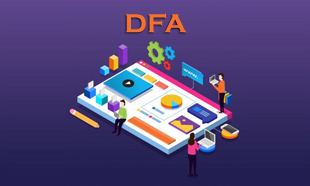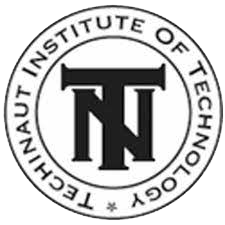0
Diploma in Financial Application" at GD Computer Class, a Techinaut Institute of Technology franchise in Una, Gir Somnath, Gujarat, focuses on specialized training in financial software, accounting principles, and taxation management for aspiring finance professionals.
DIPLOMA IN FINANCIAL APPLICATION
GD Computer Class, located in Una, Gir Somnath, Gujarat, offers a specialized 6-month Diploma in Financial Application (DFA) course. This program operates as a franchise of the Techinaut Institute of Technology. It aims to equip students with the essential skills and knowledge required for financial management and accounting using computer applications. Through a structured curriculum covering basic computer fundamentals, financial software applications, and accounting principles, students undergo practical training to prepare them for financial management and accounting careers.
THE OBJECTIVE OF THE COURSE:
The primary objective of the Diploma in Financial Application (DFA) course at GD Computer Class is to provide students with comprehensive knowledge and practical skills in financial management and accounting using computer applications. By the end of the course, students will be able to:
- Understand the basic concepts of financial management, accounting principles, and financial software applications.
- Utilize financial software applications effectively for tasks such as bookkeeping, accounting, and economic analysis.
- Manage financial data, transactions, and reports efficiently using computerized accounting systems.
- Develop proficiency using popular financial software applications such as Tally for financial management and accounting tasks.
- Apply financial management and accounting knowledge and skills in various professional settings, including businesses, organizations, and financial institutions.
COURSE OVERVIEW:
1. Basics of Computer:
Students are introduced to the fundamental concepts of computers, including hardware, software, input/output devices, and data processing. They learn about computers' role in financial management and accounting and gain an understanding of basic computer operations.
2. Computer Appreciation:
This module covers appreciating computers and their applications in various fields, including financial management and accounting. Students learn about the evolution of computers, computer generations, and the impact of computers on business processes.
3. Word Processing:
Students learn to use word processing software to create and format documents related to financial management and accounting. They learn to prepare financial reports, letters, and memos using word processing tools.
4. Spreadsheet Package:
This module focuses on spreadsheet software applications such as Microsoft Excel. Students learn to use spreadsheets for budgeting, financial analysis, and data management. They gain skills in creating formulas, functions, and charts to analyze financial data.
5. Presentation Package:
Students learn to create financial management and accounting presentations using presentation software such as Microsoft PowerPoint. They also gain skills in designing and delivering presentations that effectively communicate financial information.
6. Introduction to Internet:
Students are introduced to the Internet and its applications in financial management and accounting. They learn to use online resources for research, communication, and accessing financial information. Practical exercises involve using Internet tools and resources for financial analysis and reporting.
7. Email:
This module covers using email for communication in financial management and accounting. Students learn about email etiquette, how to compose and send professional emails, and how to manage correspondence related to financial transactions and reports.
8. Introduction to Tally:
Students are introduced to Tally, a popular accounting software application for financial management and accounting tasks. They learn about Tally's interface, features, and functions for managing financial data, transactions, and reports.
9. Administration in Tally:
This module covers Tally's administrative functions, including user management, company configuration, and security settings. Students gain skills in setting up and managing Tally accounts for financial management and accounting purposes.
10. Managing group ledgers and Vouchers:
Students learn to create and manage groups, ledgers, and vouchers in Tally to organize financial data and transactions. They also gain skills in recording financial transactions, creating vouchers, and maintaining ledgers accurately.
11. Cost Centres and Cost Categories:
This module covers the concepts of cost centers and cost categories in Tally, which are used to track and analyze costs related to different business activities. Students learn to allocate expenses to cost centers and categories for financial analysis and reporting.
12. Introduction to Budgets:
Students learn about budgeting concepts and techniques for financial planning and control. They gain an understanding of budget preparation, monitoring, and variance analysis using Tally and other financial software applications.
13. Introduction to Voucher:
This module covers the various vouchers used in accounting and financial transactions. Students learn to create, edit, and manage vouchers in Tally to record multiple financial transactions accurately.
14. Currencies (Multiple Currencies and Foreign Exchange):
Students learn to manage multiple currencies and foreign exchange transactions in Tally for international business operations. They gain skills in currency conversion, exchange rate management, and foreign currency transactions.
15. Inventory Information:
This module covers inventory management in Tally for tracking and managing stock items. Students learn to create and manage inventory information, including stock levels, item details, and inventory transactions.
16. Voucher Entry:
Students gain practical experience in entering vouchers for various financial transactions in Tally. They learn to record transactions accurately, including sales, purchases, receipts, payments, and journal entries.
17. Displaying Information from Tally:
This module covers retrieving and displaying financial information from Tally for analysis and reporting purposes. Students learn to generate and customize reports, statements, and economic summaries using Tally's reporting features.
18. Introduction to Taxation:
Students are introduced to taxation concepts and regulations relevant to financial management and accounting. They learn about different types of taxes, tax calculations, and business tax compliance requirements.
19. Introduction to Payroll:
This module covers payroll processing and management using Tally and other software applications. Students learn to accurately calculate employee salaries, deductions, and taxes and generate payroll reports.
CONCLUSION:
The Diploma in Financial Application (DFA) course at GD Computer Class offers comprehensive financial management and accounting training using computer applications. Through a structured curriculum covering basic computer fundamentals, financial software applications, and accounting principles, students develop practical skills in managing financial data, transactions, and reports efficiently. Graduates of the course are well-prepared for careers in financial management, accounting, and related fields, equipped with the knowledge and skills to excel in the dynamic and competitive financial landscape. Join us at GD Computer Class and embark on a rewarding journey toward a successful career in financial application.


